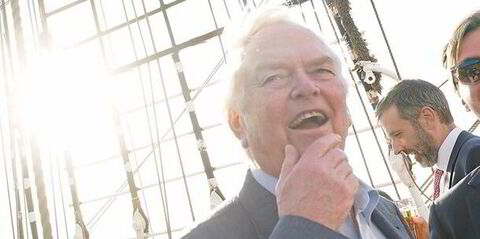“Hull insurance is underpriced. There’s a generation of people who’ve never seen a hard market. Underwriters need to be braver, have spine and say no."
“Underwriting is a very lonely place when you have bad figures....Sitting around a table with fellow underwriters and they’ve all made a profit and you haven’t — it’s not a great place to be.”
Lloyd’s underwriter, Richard Tomlin, who wears two marine market hats comes up with a solution to avoid being stranded in a bad place.
(It’s time for underwriters to say ‘no’)
“What is concerning is that while conducting the lowest number of safety exams, the number of detentions for environmental protection and safety-related deficiencies has slowly increased in the last four years.”
Seems to be a situation that US Coast Guard assistant commandant, Rear Admiral Paul F Thomas, could do something about.
(USCG warns owners over safety performance as detentions rise)
“Since the Derbyshire, bulk carriers have improved, apart from a period between 1989 and 1998, when designers cut thousands of tons of steel out of ships. But we are still left with the same problem, not enough time is being spent on designing in safety and designing ships for their purpose.”
There is still room for improvement 35 years after the loss of the Derbyshire and its 42 crew according to Allan Graveson of ships officers union, Nautilus.
(Bulk safety fears linger 35 years on from Derbyshire)
“We are comfortable with the result. We consider them satisfactory and according to plan.”
A reserved judgment on the performance of Maersk Insurance from managing director, Lars Henneberg. Guess he is content for the performance to speak for itself.
(Maersk Insurance set for growth after reaching initial targets)
“You have to see opportunity before anyone else to find a value in it. By the time everybody in the market has seen it, the market has generally priced out the value. We have got to be quick. The sooner we can understand and see the green shoots of something changing, that’s when the relationship has to really work.”
Affinity Financial Products chief, Andrew Finn, is not planning to let the grass grow under his sneakers.
(Affinity enters capital markets via tie-up with Oslo bank)
“The way we run the shipping industry is going to change enormously.”
And a warning from Affinity Research managing partner, Mark Williams, that we had better get ready for a future that is different to the past.
(Sea change looms for shipping)
Lloyd's Register marine marketing director, Luis Benito, has glimpsed the future and it's connected.
(LR study lifts lid on ships and maritime technology of the future)
“Responsible owners aren’t changing flags to move dodgy ships to flags of convenience, they’re moving for the services."
UK transport minister, Robert Goodwill, warns the Red Ensign faces more competition.
(Onus on industry to ‘adapt, improve and change’)
“In order to pronounce a particular method of shiprecycling as environmentally friendly, an exhaustive study of beaching or drydocking should be carried out, and only then can one conclude accurately on any particular method.”
Time to balance the arguments for the best way to scrap vessels according to Shashank Agrawal of cash buyer, Wirana.
(It’s time to look at real facts of beaching)
“The shipping market has not been kind to us over the last few years but we now see a glimmer of light, with rates beginning to improve. At AET, we have spent those challenging years improving our key processes and capabilities so that we become more efficient.”
A measured assessment from MISC chief, Yee Yang Chien, who sees being a major player in a niche market as the way forward.
“If we can’t get some growth now, I don’t think we’ll ever get it. there are so many factors aligned that should in fact create some growth and personally I believe we’ll see more of that in the next couple of years.”
And another sober assessment from DFDS chief executive, Niels Smedegaard.
(DFDS runs tight ship in ‘uneven’ Europe market)
Competitive times for DFDS but lets hope that Smedegaard is not promoting a change from bacon to cannibalism.
(‘Grass roots’ approach gives DFDS competitive edge as staff focus on improvement day by day)




